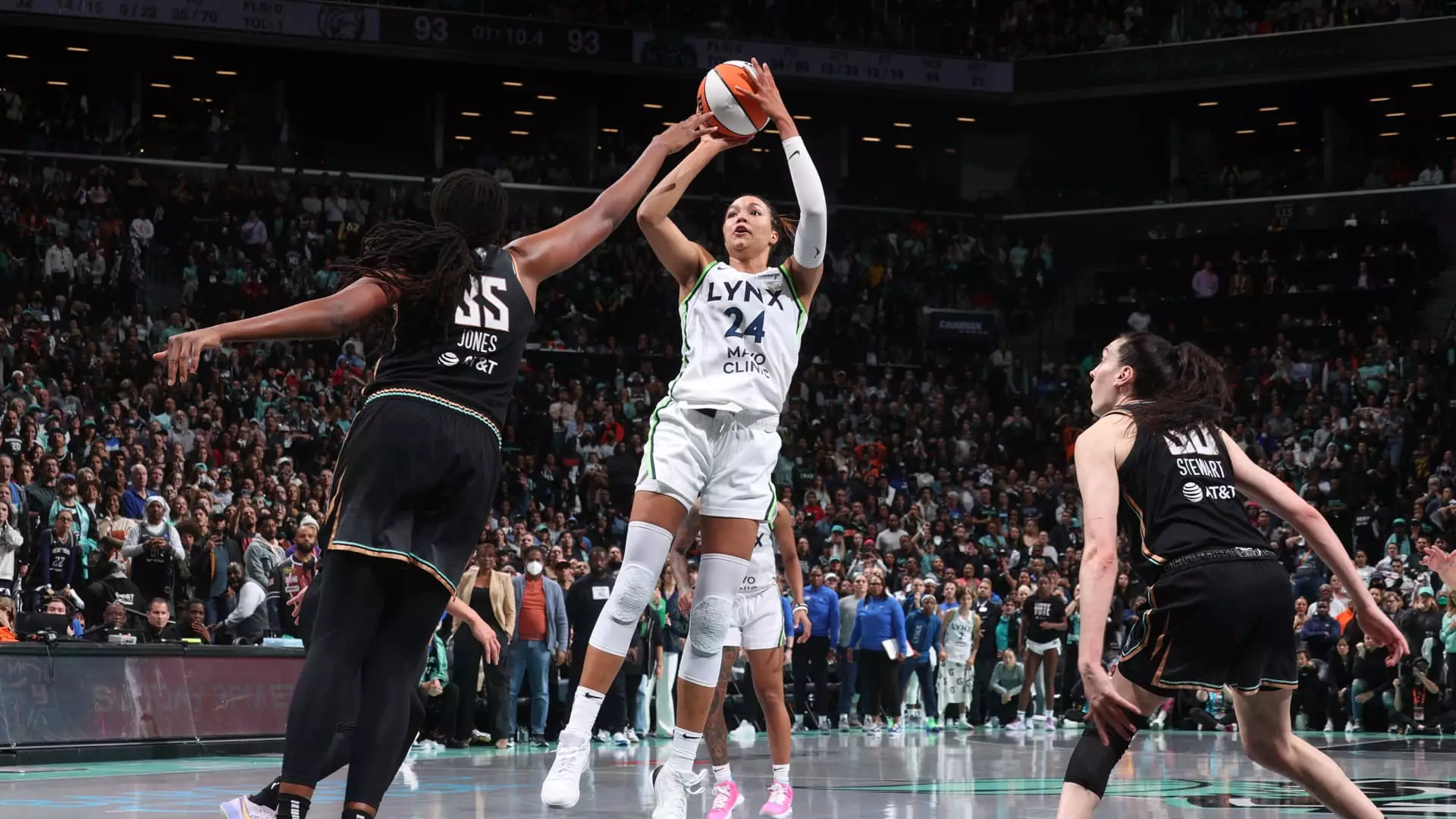The Women’s National Basketball Association (WNBA) recently unveiled plans to add three new teams, signaling one of the most ambitious expansions in its history. Cleveland, Detroit, and Philadelphia—cities deeply intertwined with basketball lore—will soon join the growing league, pushing its team count from 13 to 18 over the next five years. While this development has been hailed by league officials as a “monumental” and “bold” milestone, the move embodies both exciting potential and serious challenges that deserve a critical, nuanced discussion.
Growth Without Guarantee: Expansion Amidst Uncertain Market Dynamics
The announcement couldn’t be clearer: the WNBA is doubling down on growth. Its commissioner, Cathy Engelbert, underscored the historic significance of welcoming proud sport cities. Yet, beneath the fanfare, we must confront the harsh truths that such ambitious expansion projects tend to gloss over. The cities selected, including Cleveland—returning to the WNBA fold after the Cleveland Rockers folded due to low attendance—and Detroit, which lost the championship-winning Detroit Shock two decades ago, bring with them a history of financial and fan engagement struggles.
The lingering question is whether the lessons of the past have truly been internalized. The league’s decision to demand $250 million franchise fees, a steep and unprecedented cost, reflects immense confidence but also places massive financial pressure on ownership groups. Will these teams be able to thrive in economically diverse markets? Expensive franchise fees might restrict ownership opportunities to ultra-wealthy investors, potentially creating barriers to community-rooted ownership and ultimately hampering grassroots efforts critical to sustainable fan support.
The Real Impact Beyond Basketball: Symbolism vs. Substance
Those enthusiastic about the expansion often highlight the symbolic victory: women’s basketball gaining broader national attention and recognition in cities historically dominated by male sports franchises. The involvement of NBA owners—Detroit’s Tom and Holly Gores and Philadelphia’s Harris Blitzer Sports & Entertainment—signals a welcome win for infrastructure and marketing muscle.
However, this integration also triggers concerns about the WNBA’s autonomy and identity. When women’s teams become extensions of storied NBA brands, they might gain visibility, but risk becoming mere appendages rather than independent entities with their own, robust cultures and fan bases. The danger lies in women’s professional sports being overshadowed or treated as secondary, perpetuating inequality in pay, media coverage, and fan engagement despite the veneer of progress.
Detroit’s vice chairman Arn Tellem’s statement that this expansion is “much bigger than basketball” is ambitious, yet it oversimplifies thorny issues around representation, economic disparities, and gender inequality. Growth does not automatically translate to genuine equity or influence for women athletes if structural disparities remain unaddressed.
Choosing Tradition Over Innovation: Expansion or Evolution?
One can’t help but notice a certain conservatism in the expansion choices. Cleveland, Detroit, and Philadelphia are all classic basketball hubs with existing NBA teams—safe bets perhaps from a marketing standpoint. Yet, other cities like Houston, Miami, and Austin, with vibrant, younger populations and increasing investment in women’s sports, were passed over.
In an era where innovation and inclusion should drive growth, the WNBA’s expansion appears to hedge towards established markets rather than riskier, but potentially groundbreaking, new territory. Commissioner Engelbert’s mention that Houston remains “on the radar” for future expansion feels more like a diplomatic sidestep than a genuine commitment to exploring diverse regions with deep potential.
This approach risks alienating emerging markets where women’s sports might receive even stronger local enthusiasm, especially among younger, progressive demographics eager to support gender equity. It’s a missed opportunity to align expansion with broader cultural shifts rather than simply following the traditional sports playbook.
Why the Future of Women’s Basketball Depends on More Than Expansion
Ultimately, this expansion heralds unprecedented growth for the WNBA, but with it comes the imperative to critically assess sustainability and equity implications. Expansion cannot be a mere numbers game or a way to ride the coattails of NBA franchises. The league must innovate, champion genuine community engagement, and foster autonomy for women’s teams beyond financial metrics.
The impressive price tag signals market confidence but also raises the stakes—ownership groups will be under tremendous pressure to generate profits and crowds. The risk: teams might prioritize short-term financial success over long-term fan cultivation or player welfare. Broadening the league’s footprint is vital, but without a parallel commitment to addressing systemic issues—media coverage disparities, pay inequality, and grassroots development—the WNBA’s growth risks becoming superficial.
The WNBA stands at a crossroads: Will it become a truly transformative force in professional sports, or will expansion merely paper over deeper challenges women’s basketball continues to face? The answer lies not in franchise counts, but in the willingness to pursue radical, inclusive innovation in how the league operates and serves its communities.


Leave a Reply